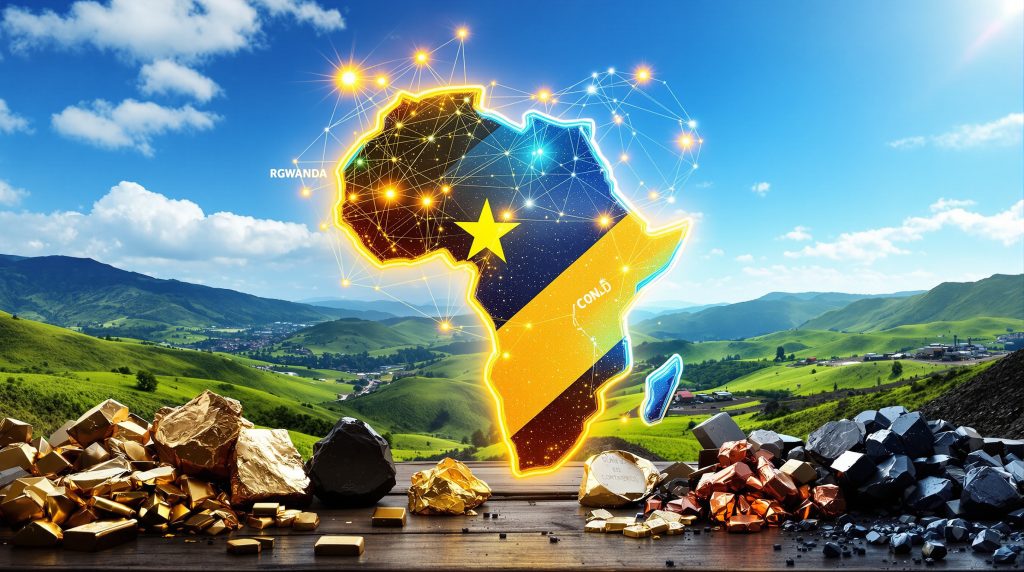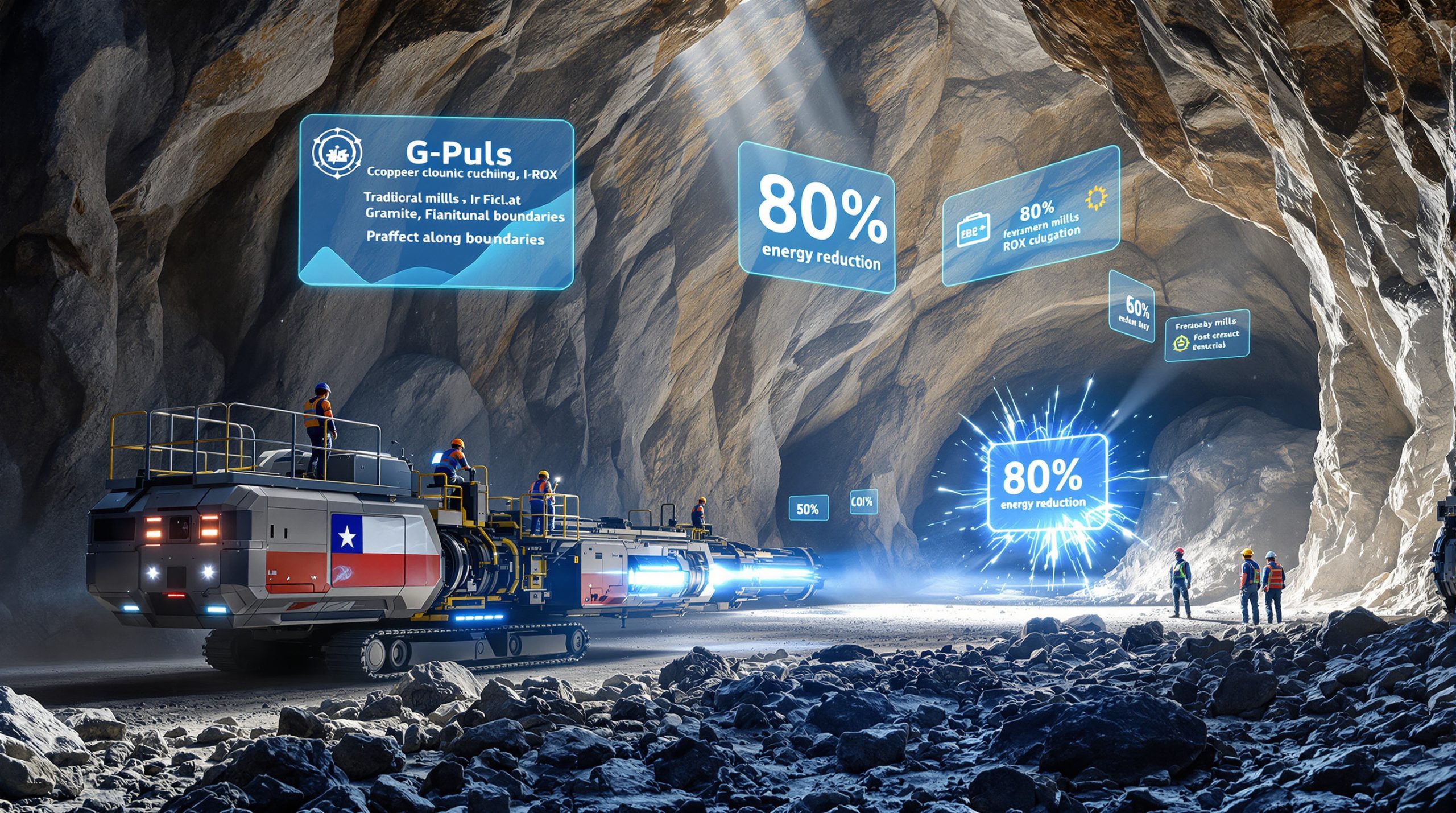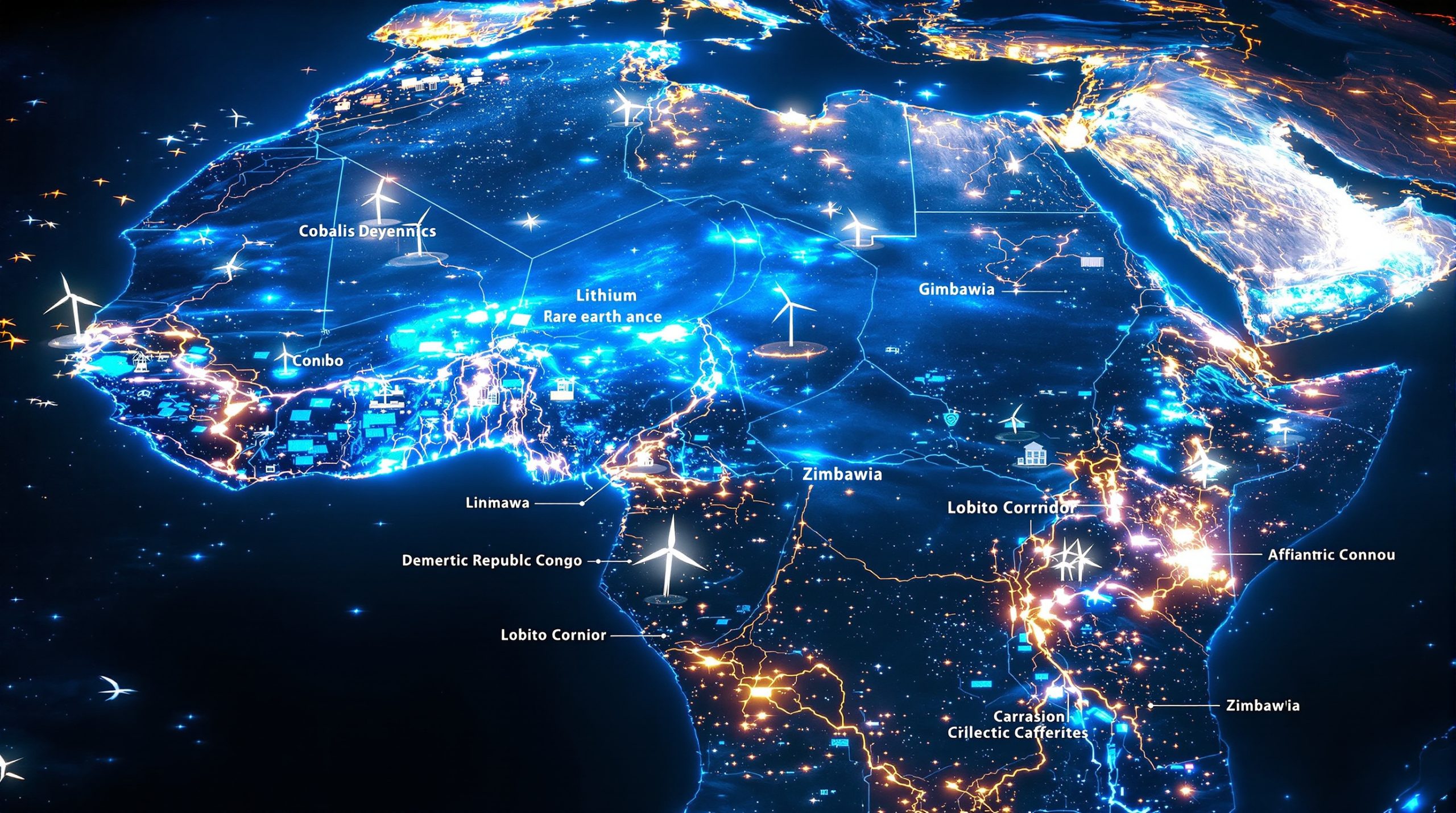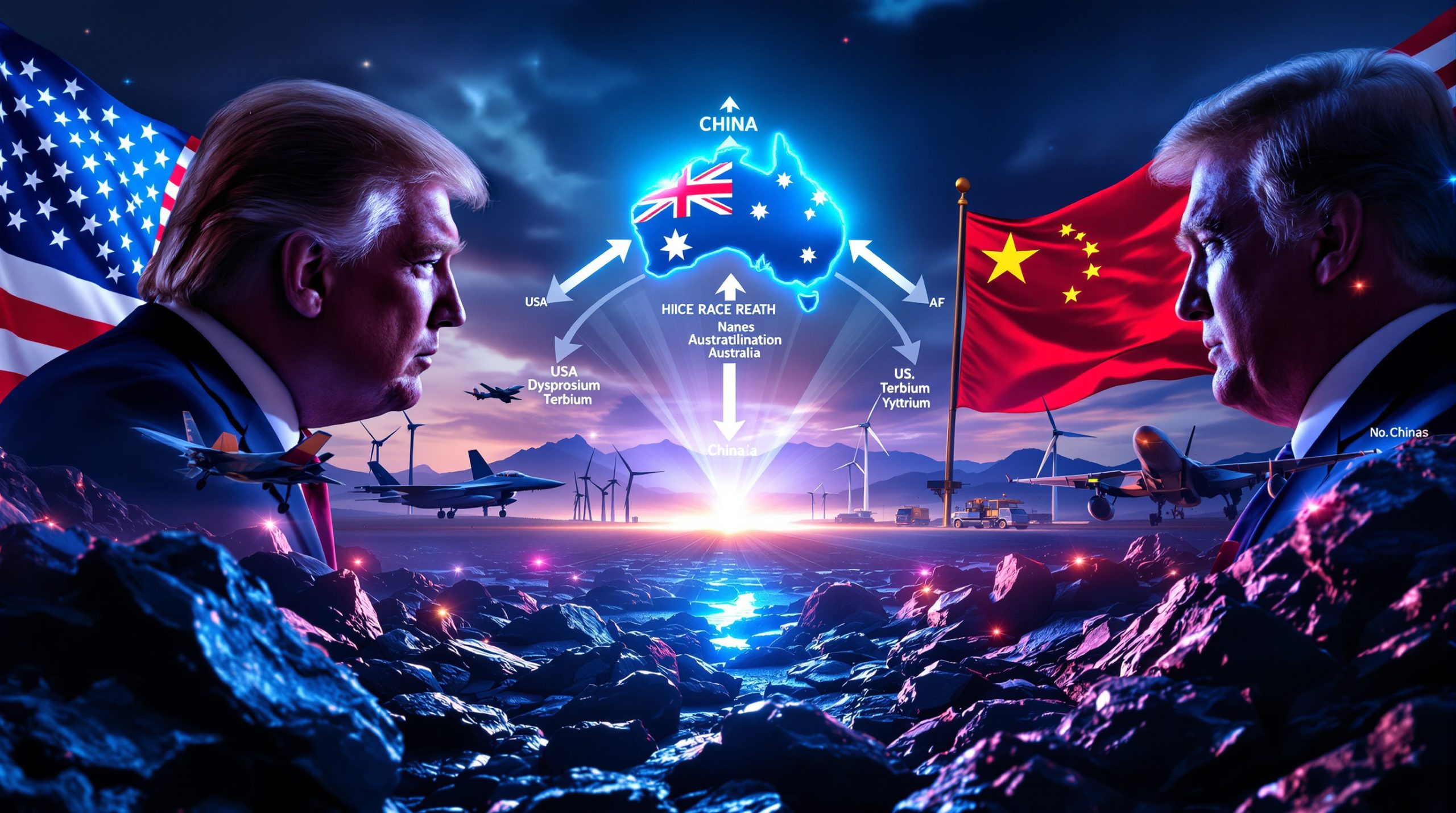What is the Rwanda-Congo Mineral Supply Overhaul?
The Rwanda-Congo mineral supply overhaul represents a landmark economic framework aimed at transforming mineral supply chains between Rwanda and the Democratic Republic of Congo (DRC). This initiative, developed following the Washington peace agreement in June 2025, seeks to revolutionize how critical minerals energy transition are extracted, processed, and traded in one of Africa's most resource-rich yet conflict-affected regions.
The 17-page draft proposal outlines comprehensive economic cooperation measures designed to restructure the mineral sector while attracting billions in Western investment. According to Reuters reporting from September 2025, the framework is intended to "de-risk private sector investment in a cost-effective manner" while simultaneously reducing illicit trade and enhancing transparency across the entire supply chain.
Key Components of the Framework
The draft framework encompasses several innovative mechanisms to transform regional mineral governance:
- Comprehensive regulatory reforms targeting supply chain transparency
- Third-party mine site inspection mechanisms to verify compliance
- Cross-border special economic zones specifically designed for mineral processing
- International partnership structures with Western nations including the United States
- Investment de-risking protocols to encourage private sector participation
Timeline and Implementation Status
The mineral supply overhaul is progressing through defined stages:
- The draft proposal spans 17 pages of detailed economic cooperation measures
- Final framework is expected to be completed by early October 2025
- Formal signing ceremony by heads of state scheduled for late 2025
- Implementation remains contingent on resolution of ongoing security concerns
As a Western diplomat noted in the Reuters report, "One of the main obstacles to finalizing and signing this regional agreement is the fact that the other peace processes have stalled." This highlights the intricate relationship between economic cooperation and security improvements in the region.
Why Are Rwanda and Congo's Mineral Resources Globally Significant?
The eastern Congo-Rwanda border region hosts some of Africa's most strategically valuable mineral concentrations, making it a critical source for materials essential to global technology and clean energy transitions. These resources have immense geopolitical significance as Western nations seek to develop supply chains independent from Chinese dominance.
Strategic Mineral Deposits in the Region
The region contains diverse and abundant deposits of critical minerals:
- Tantalum: Essential for electronic capacitors in smartphones, computers, and advanced electronics
- Gold: Traditional store of value with numerous industrial applications
- Cobalt: Critical component in lithium-ion batteries powering electric vehicles
- Copper: Fundamental for electrical infrastructure, renewable energy systems, and electric grids
- Lithium: Key battery mineral for energy storage technologies and electric mobility
These minerals form the backbone of modern technology, renewable energy systems, and the global transition to electrification, making the region's resources strategically vital for industrial powers worldwide.
Global Supply Chain Implications
The transformation of Rwanda-Congo mineral governance has far-reaching implications:
- The region represents a significant alternative to Chinese-dominated supply chains
- These critical minerals are essential for clean energy transition and technology manufacturing
- Western nations are actively seeking secure access to these resources for strategic industries
- Successful implementation could reshape global mineral markets through improved governance
The region's mineral wealth has been historically exploited through informal and often illicit channels, with Kinshasa consistently identifying mineral plundering as a key driver of conflict in eastern DRC.
How Will the Agreement Transform Regional Mineral Governance?
The draft framework proposes substantial innovations in mineral governance that could fundamentally alter how resources are managed, traded, and processed in the region.
Regulatory Reform Mechanisms
The proposal outlines several governance innovations designed to increase transparency and accountability:
- Standardized certification processes for conflict-free minerals
- Digital traceability systems for tracking minerals from mine to market
- Harmonized cross-border customs and export procedures
- Joint monitoring committees with international oversight
- Anti-corruption measures throughout the supply chain
These mechanisms aim to formalize previously informal or illicit mineral trading activities while creating regulatory certainty for international investors and buyers.
Economic De-Risking Strategies
To attract substantial investment, the framework includes specific economic incentives:
- Creation of investment protection frameworks
- Streamlined licensing and permitting processes
- Tax incentives for compliant mining operations
- Infrastructure development in mining corridors
- Technical assistance programs for artisanal miners
These measures collectively aim to transform the high-risk investment environment that has historically deterred legitimate international capital from entering the region's mineral sector.
What Security Challenges Threaten the Agreement's Implementation?
Despite economic cooperation frameworks being developed, significant security obstacles threaten implementation. The Rwanda-Congo mineral supply overhaul is inextricably linked to broader peace processes that have shown limited progress.
Current Conflict Dynamics
Several security challenges remain unresolved:
- Rwanda has not withdrawn troops from eastern Congo as promised in the peace agreement
- M23 rebel forces (allegedly Rwanda-backed) control major cities in eastern DRC
- Strategic mining areas remain under non-state actor control
- Planned operations against armed groups have not commenced
- Ongoing territorial disputes complicate economic cooperation
Reuters reporting confirms that Rwanda-backed M23 rebels have seized the region's two largest cities and lucrative mining areas, creating a fundamental obstacle to implementation.
Political Tensions and Trust Deficit
Beyond active conflict, deeper political challenges persist:
- Congolese officials refuse economic cooperation while territory remains occupied
- Western diplomats note stalled progress on security commitments
- Regional trust deficits undermine economic integration efforts
- Historical grievances regarding mineral exploitation remain unresolved
- Competing regional interests complicate implementation
A Congolese official quoted by Reuters clearly stated that Kinshasa "cannot consider economic cooperation with Rwanda as long as its army occupies part of our territory," highlighting the fundamental political barriers to implementation.
What Role Will International Partners Play in the Transformation?
The mineral sector transformation is designed as a multilateral effort with significant international support and involvement from Western powers and international organizations.
US-Led Diplomatic Initiative
The United States has taken a central role in the process:
- Washington peace agreement established the framework for cooperation
- The trump critical minerals order positioned the administration as primary mediator and guarantor
- Technical assistance for regulatory reform and capacity building is planned
- Potential investment from US development finance institutions
- Diplomatic pressure to ensure security commitments are fulfilled
The peace agreement brokered by President Trump's administration in June 2025 laid the groundwork for the current mineral sector transformation initiative.
Multilateral Support Structure
Beyond US involvement, a broader international coalition is engaged:
- International financial institutions providing implementation funding
- Technical expertise from specialized UN agencies
- European Union trade facilitation and market access programs
- Regional economic communities supporting cross-border integration
- Civil society monitoring of human rights and environmental standards
Western diplomats have emphasized that "without progress on security, the partners will find it difficult to commit to economic cooperation," underscoring the conditional nature of international support.
How Might the Mineral Sector Transformation Impact Regional Economics?
If successfully implemented, the mineral sector transformation could catalyze profound economic changes throughout the Great Lakes region of Africa.
Potential Economic Benefits
The framework aims to generate substantial economic advantages:
- Billions in Western investment potentially unlocked for mineral development
- Job creation in formal mining and processing sectors
- Tax revenue increases through formalization of mineral trade
- Infrastructure development in previously neglected regions
- Value addition through local mineral beneficiation opportunities
These economic benefits would represent a significant departure from the current pattern of resource exploitation that generates limited formal economic activity or government revenue.
Structural Economic Shifts
Beyond immediate benefits, deeper structural changes are envisioned:
- Transition from conflict minerals to legitimate trade channels
- Reduced illicit financial flows from smuggling operations
- Integration into global value chains for critical minerals
- Diversification of economic activities beyond raw material extraction
- Development of regional mineral processing capabilities
Such transformation would fundamentally alter regional economic relationships that have historically been characterized by informal cross-border trade and conflict economies.
What Environmental and Social Governance Measures Are Included?
The draft framework recognizes that sustainable mineral sector development requires robust environmental protection and community benefits.
Environmental Protection Frameworks
The proposal includes environmental safeguards:
- Standards for responsible mining practices
- Rehabilitation requirements for mining sites
- Protected area conservation near mining operations
- Water and soil pollution prevention measures
- Climate impact considerations in mining development
These environmental provisions acknowledge the need to prevent the environmental degradation that has often accompanied resource extraction in the region.
Community Development Initiatives
Social benefits are central to the transformation vision:
- Local content requirements for mining operations
- Community benefit-sharing mechanisms
- Skills development and training programs
- Health and education investments in mining communities
- Artisanal miner formalization and support programs
These social governance measures aim to ensure that mineral wealth benefits local communities rather than only external actors or elites.
How Does the Agreement Address Illicit Mineral Trading?
Combating illicit mineral trading represents a core objective of the proposed framework, targeting both the means and incentives for smuggling.
Anti-Smuggling Measures
Specific mechanisms target illicit trade:
- Coordinated border security operations
- Joint intelligence sharing on smuggling networks
- Standardized documentation for legitimate mineral transport
- Penalties for companies involved in illegal mineral purchases
- Regional cooperation on enforcement against illicit traders
These measures directly address the significant smuggling operations that have historically diverted mineral wealth from official channels.
Market Access Incentives
The framework creates positive incentives for legitimate trade:
- Premium pricing for certified conflict-free minerals
- Preferential access to Western markets for compliant producers
- Simplified export procedures for verified supply chains
- Technical support for meeting international standards
- Financing mechanisms for responsible mining operations
These market incentives aim to make legitimate mineral trade more profitable than smuggling, creating economic motivation for compliance.
What Are the Prospects for Successful Implementation?
The mineral supply overhaul faces significant implementation challenges but also has potential pathways to success.
Critical Success Factors
Several key factors will determine implementation outcomes:
- Resolution of security issues in eastern DRC
- Withdrawal of foreign forces from contested territories
- Political will from both governments to implement reforms
- Sustained international support and monitoring
- Private sector engagement and investment
Western diplomats have emphasized that progress on security is a prerequisite for economic cooperation, highlighting the sequential nature of implementation.
Implementation Challenges
Substantial obstacles remain:
- Deep-rooted regional tensions and historical grievances
- Powerful interests benefiting from current informal systems
- Capacity limitations in regulatory institutions
- Infrastructure deficits in mining regions
- Competing priorities in national development agendas
The continued presence of Rwanda-backed forces in eastern DRC represents the most immediate obstacle to implementation, with Congolese officials categorically rejecting economic cooperation while occupation continues.
FAQ: Rwanda-Congo Mineral Supply Overhaul
How will this agreement affect global mineral prices?
The successful implementation of the Rwanda-Congo mineral supply overhaul could stabilize prices for critical minerals energy transition by reducing supply disruptions associated with conflict and improving market predictability. However, initial implementation may create temporary supply constraints as systems adjust to new regulatory requirements and formalization processes.
Will this agreement reduce China's influence in African mining?
The framework explicitly aims to diversify mineral supply chains away from Chinese dominance by creating alternative channels for Western investment and market access. However, China's established position in African mining will likely remain significant given its existing investments and processing capabilities for many big pivot critical minerals.
How will local communities benefit from these reforms?
The agreement includes provisions for community development, local employment, and benefit-sharing mechanisms. Success will depend on effective implementation and monitoring of these social responsibility components, with specific requirements for mining companies to contribute to local development.
What happens if security conditions deteriorate further?
The economic cooperation components of the framework are explicitly linked to security improvements. Further deterioration would likely delay or prevent full implementation of the mineral sector reforms, as Congolese officials have made clear that territorial sovereignty is a prerequisite for economic cooperation.
How will compliance with the new regulations be verified?
The framework proposes third-party inspections, digital traceability systems, and international monitoring mechanisms to verify compliance throughout the mineral supply chain. These verification mechanisms are designed to ensure that minerals are sourced responsibly and not contributing to conflict, in line with recent us mineral production order guidelines.
Ready to Identify the Next Major Mineral Discovery?
Discover why significant mineral findings like those discussed in Rwanda-Congo can create substantial investment returns by exploring Discovery Alert's dedicated discoveries page. Powered by the proprietary Discovery IQ model, Discovery Alert provides real-time notifications of significant ASX mineral discoveries, helping you position yourself ahead of the market at https://discoveryalert.com.au/discoveries/.




